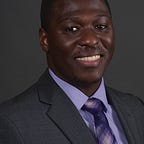What the Black Power Movement Can Teach Us About Contemporary Mental Health Campaigns
In 1968, James Brown, the “Godfather of Soul,” released his Black empowerment anthem titled “Say it loud: I’m Black and I’m proud.” Infused with Brown’s signature funk sound, the song loudly proclaimed that Black is beautiful! This now classic tune represented an embodiment of a people’s nascent racial and political consciousness. Some even argued that it would spark efforts to redefine what it meant to be Black in America.
I was reminded of Brown’s hit song while reading Daniel Oppenheimer’s piece. Oppenheimer has penned a compelling and engaging critique of the unintended consequences of many mental health awareness campaigns. While acknowledging the benefits of public shifts in the language around mental health, he spotlights the inherent limitations of this approach. The failure to center the humanity and worthiness of each person, despite their current mental health history, accounts for one of the problems with the current approach. Another concern he highlights is the recognition that when language is disconnected from systemic analysis and change, progress will inevitably be short-circuited.
History makes this point quite clear. Many young Black people placed their hopes in the Black Power rhetoric embedded in songs like James’ 1968 hit. They recognized the value of Black self-empowerment, self-definition and consciousness raising. After this shift in how Black Americans defined themselves, they reasoned, a broader change in the conditions of Black America would occur.
In hindsight, we can see that simply changing our language may produce positive, short-term personal effects but true social change must address the underlying structures that exclude and dehumanize individuals within targeted groups, including those who deal with mental illness.
As a psychologist, I see great value and promise in Oppenheimer’s call to recognize the full humanity of individuals within stigmatized groups using an individual and systemic lens. We must identify and eliminate barriers to full acceptance of marginalized individuals, even when they are flawed and not at their best. Oppenheimer has initiated this process by calling out the double bind of restrictive validation. Our task must be to root out these barriers and give voice to their destructive force.
My most fervent hope is that psychology look outside of its borders to examine how other disciplines address this complex problem of honoring the complexity of our humanity. Often, mental health professionals operate in isolated silos and fail to learn lessons from other professions. If we hope to effect broader social and political changes in the way we create mental health awareness campaigns, all hands must be on deck.
Drawing from the expertise of historians, sociologists and anthropologists would help us craft stronger campaigns that speak to the lived experiences of our clients but also tap into the broader humanity embedded in all of us. Our multidisciplinary efforts may strike a different tune that is in harmony with our current needs.
Before I close this short response, I would like to pose a few questions that both Mr. Oppenheimer and the audience can reflect on:
1. Oppenheimer recognizes the need for broader social change to make our campaigns more effective. What lessons can be learned from the histories of civil rights campaigns for various marginalized groups, including racial-ethnic minorities, LGBT individuals and women that might be useful for challenging the limitations with current mental health campaigns?
2. How can we bring in the voices of other academic disciplines to address how we can mount more effective mental health/illness campaigns? What other disciplines may have something unique and/or pertinent to improving our campaigns?
I appreciate the opportunity to join this conversation. Let’s keep it going!
